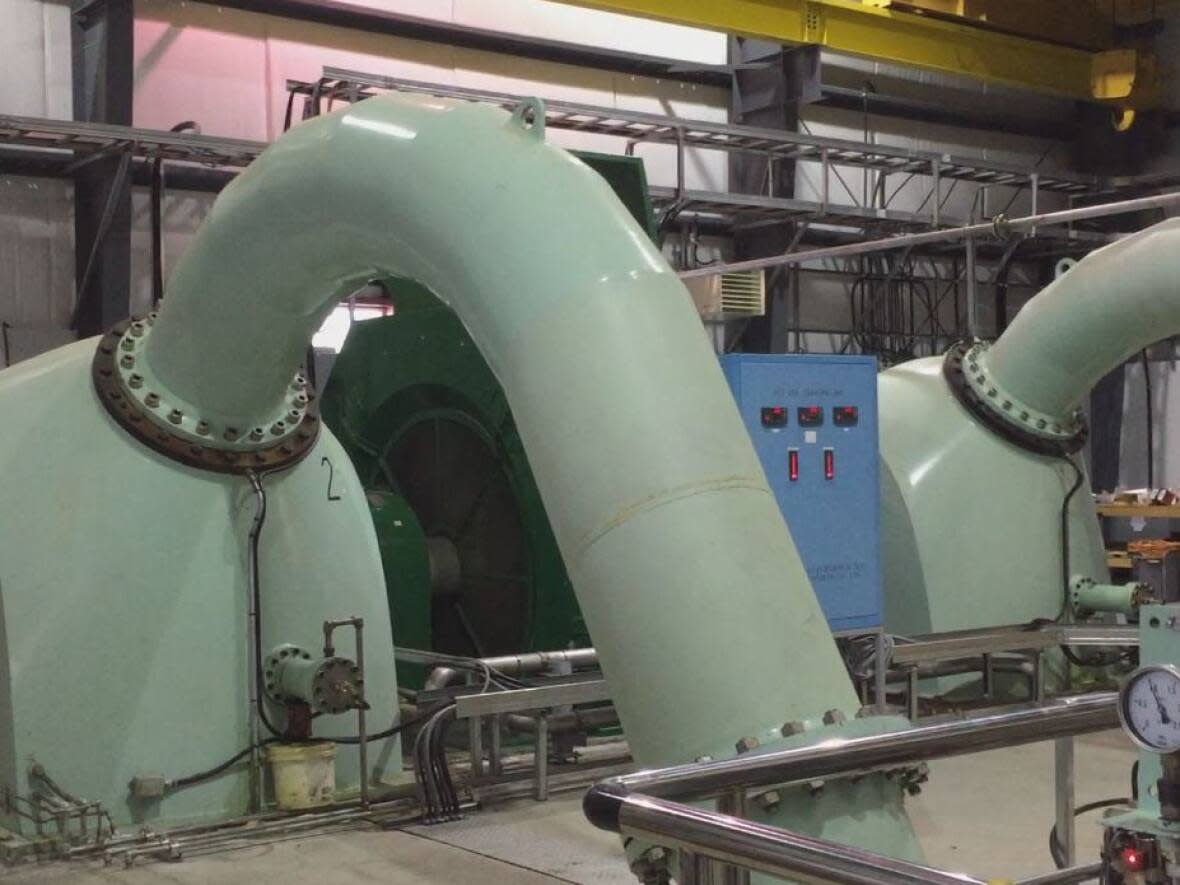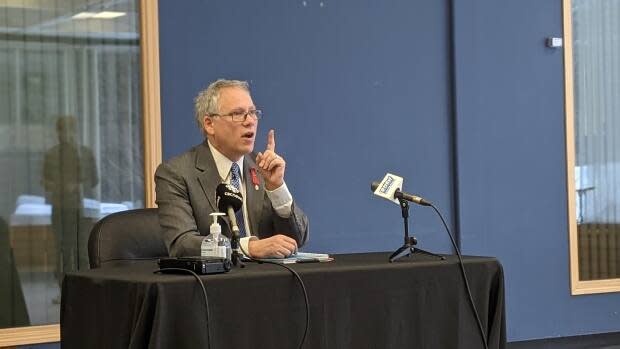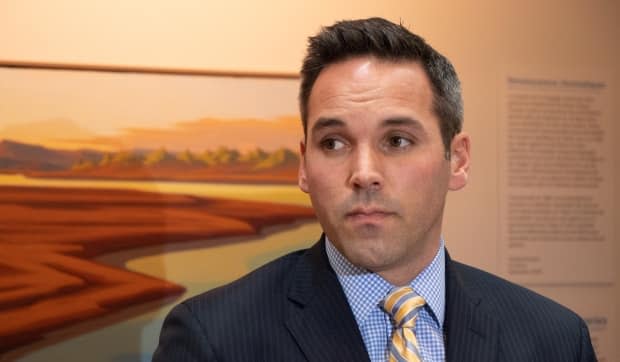Atlin hydro expansion facing $60-million funding gap

The cost and timeline of the Atlin Hydro Expansion Project (AHEP) has come under scrutiny in the Yukon legislature, as the proponent says "crazy" external factors have led to a critical funding gap.
David Carlson is a consultant for Tlingit Homeland Energy Limited Partnership (THELP) dealing with contract negotiations and financing. He said the cost of the project has risen to $310 million due to inflation, supply chain issues, higher commodity prices and a weak Canadian dollar. In March, the estimate was at $230 million.
"It's just crazy. It's like the world doesn't want anything built right now, so they've raised the price of everything," Carlson said.
"So it's skyrocketed and it's not just us. It's not because of us. It's nothing we've done."
The hydro expansion project is a plan by THELP to build on existing infrastructure, raising its power output from 2.1 megawatts to 10 megawatts. Electricity would be sold to Yukon Energy, increasing the territory's supply of renewable energy in the winter. This would allow the Yukon to displace four rented diesel generators.
The expansion project would also include the construction of a transmission line from Atlin, B.C., to Jakes Corner in the Yukon, construction of a substation, and upgrades to the transmission line from Jakes Corner to Whitehorse.
Last week, Yukon's energy minister revealed that the project is facing a $60-million funding shortfall, a figure confirmed by Carlson to be "a reasonable number."
To date, Carlson said multiple funding partners have committed to spending $254 million on the project. That includes contributions from the federal government, the B.C. government and a $50-million grant from the Yukon government. THELP also secured a loan from the Canada Infrastructure Bank by borrowing against the sale of electricity.
'We totally believe in this project,' energy minister says
John Streicker, Yukon's minister of energy, mines and resources, said his government is helping the Taku River Tlingit First Nation find funding so construction can begin.
"I think as funders, we need to know that the funds are in place. We wouldn't want to invest in a project that we didn't know was secure. So I think it is important to make sure that there is a path forward on the funding," Streicker said.

"I think we're all re-evaluating how much we've been putting in to try and close that gap."
Despite the higher cost, Streicker maintains the project is a good one for the government to invest in.
"Atlin is very important. So we totally believe in this project. The other thing is that when you look at the project, what it would get us energy for is 13.5 cents a kilowatt-hour in the winter. Diesel costs us much more than that," he said.
At this moment, Carlson said contractors have been selected for the project and negotiations are underway on the final prices. He said regulatory approvals are being sought and that the project should be shovel-ready by next spring.
That leaves the matter of funding. Carlson said THELP is working with the different governments to secure grants that would bridge the gap.
"If it doesn't come in as grants, the project simply just can't proceed. We've taken the most debt we can, that I feel comfortable with. We've invested the most equity that I feel comfortable with," he said.
"Everything else has to come from grants. So every time the project capital cost goes up, or every time there's a funding gap, it has to come from grants. There's just no other way for the project to be economic."
Concern over rising cost, extended deadlines
The prospect of additional tax dollars being spent on the project gives Yukon Party leader Currie Dixon "extreme concern" as his party has been sounding the alarm over the cost trajectory.
Dixon has flagged Yukon Energy's 10-year renewable electricity plan which as recently as 2019 had the expansion project's cost projected at $120.7 million.
"It's starting to raise questions about the viability of this project. When it was first presented, it was a fairly reasonable-sounding project," he said.
"But since then, as we watched the numbers grow and we have just seen the deadlines shot, we're getting more and more concerned about how much it is."

Hearing Streicker's comments on the government's contribution made Carlson hopeful that "they're going back to the cupboard and seeing if there's any other penny banks that they haven't opened yet."
As for timelines, he said commercial operation of AHEP is now projected to be 2025, a year later than first expected, partly due to permitting delays.
But he added that the target could be pushed further to 2026 if funding is not secured by January.
"And the reason for that is, of course, we can only really build this in the spring, summer and fall. So if we're delayed and it pushes this past one more winter, then that's almost a one-year delay rather than just sort of a few months," he said.
Yukon Energy has signed a 40-year power purchase agreement with THELP but a Feb. 4 news release from the crown corporation says that deal is subject to numerous milestones, including THELP's ability to obtain government grant funding.
Carlson said the capital costs of the project need to be "contained as much as we can" for the power purchase agreement to make business sense.
"Because the energy prices are fixed, we're only going to get a certain amount of revenue. We need to make sure that that revenue can pay back the loan and give us a return on investment and pay the operating cost and everything else," he said.


